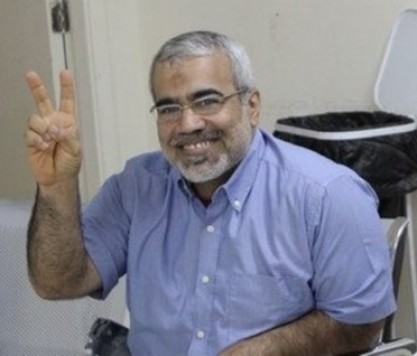08-July-2022
Prisoners in Bahrain are suffering due to poor conditions and lack of adequate medical care, says a new report by the Bahrain Center for Human Rights (BCHR), Gulf Centre for Human Rights (GCHR) and Americans for Democracy & Human Rights in Bahrain (ADHRB). The report is being launched on 08 July 2022, which marks the one-year anniversary of the hunger strike started by Dr. Abduljalil Al-Singace to protest poor treatment.
Since 2011, Bahrain authorities have sentenced thousands of people in connection to the February 14 popular movement and for pro-democracy activities. Women human rights defenders have not been spared torture, abuse and sexual assault. The report says, “The prison conditions remained poor, and there have been persistent reports of failure to provide adequate medical care to prisoners in Bahrain. In addition to overcrowding, the sanitary conditions in Jau prison are inadequate, and the hygiene and sterilization procedures are deficient,” which led to two outbreaks of Covid-19 in 2021.
There are also recent concerns about reports of tuberculosis in Jau prison in 2022, with sick prisoners not being segregated from ill inmates, and facing reprisals for protesting and demanding tests. Political prisoner Hassan Abdullah Habib was informed by doctors in the hospital that he had tuberculosis but he was transferred back to prison, despite being contagious. At least three other prisoners had symptoms of the disease.
Another prisoner who has been subjected to mistreatment and abuse is Dr. Abduljalil Al-Singace, a prominent opposition figure and human rights defender and a member of the group known as the “Bahrain 13”. Dr. Al-Singace began a liquids-only hunger strike on 8 July 2021 to protest against ill-treatment and harassment in Jau prison. He resorted to a hunger strike after negotiations with the prison administration had failed to recover the cultural research he had worked on for four years. He has not seen his doctor since January 2022 and his family says the “authorities regularly withhold sugar and milk from him in an effort to make him end his strike.”
Prominent human rights defender Abdulhadi Al-Khawaja, former president and co-founder of BCHR and GCHR, has repeatedly protested poor conditions in prison, including denial of medical treatment. Al-Khawaja was awarded the 2022 Martin Ennals Award for his ongoing activism. “In Bahrain’s prisons, your basic needs such as food, medical treatment, communications with family, sleeping hours, access to open air, or even access to the toilet all are used to provoke you, oppress you, or punish you and eventually to undermine your integrity, self-confidence, and self-respect,” Al-Khawaja said.
The report is being launched at an event online on 08 July 2022.





